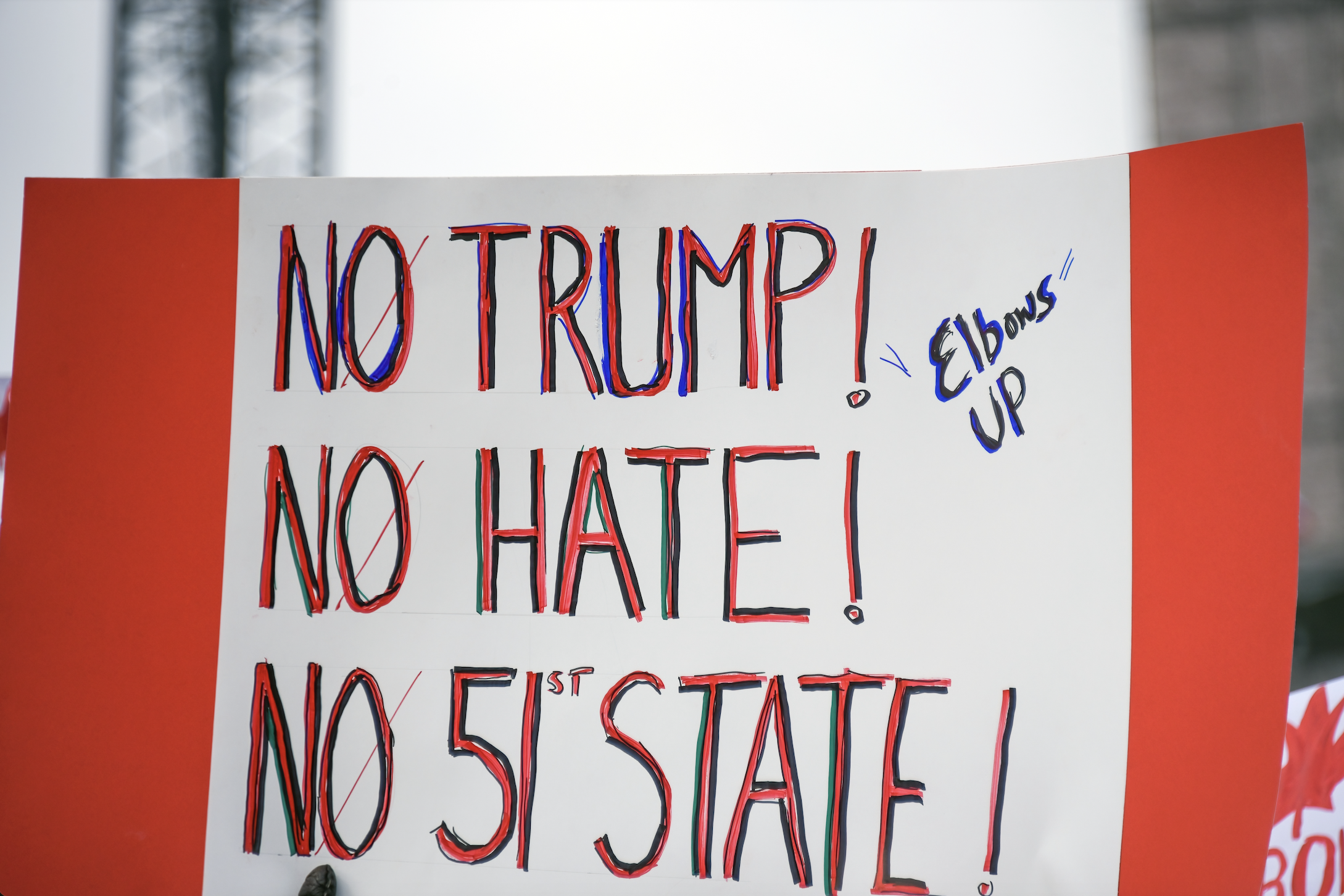Donald Trump, Great Canadian Unifier

Shutterstock
By Perrin Beatty
May 2, 2025
Prime Minister Mark Carney is preparing for his first White House bilateral with Donald Trump; he should be sure to pack a thank-you gift for the mercurial president. As evidenced in the election results that have made Carney an elected prime minister largely based on his credentials as an economist and crisis manager, Trump has become perhaps the single greatest unifier in modern Canadian history.
Each of the parties represented in the new Parliament made rejecting his interference in Canada its starting point. Few Canadian politicians have ever been able to generate that sort of partisan unanimity in this country, but Donald Trump made it look easy.
No-one knows how long this Parliament will last. Typically, minority Parliaments in Canada don’t go beyond two years, but this is as solid a minority as they come, and none of the opposition parties has an incentive to force an early election. Our elected leaders have a chance to change the country for the better.
There is a remarkable public consensus on where the Prime Minister needs to start. Job One is to deal with the threat from the Oval Office. After that, the government needs to focus on building our economic resilience by reducing our reliance on the United States and restoring our economic fundamentals. Building the resiliency that will allow us to overcome future emergencies, whether they originate in Washington, Moscow or Beijing, or whether they come in the form of a new pandemic or a climate emergency, cannot wait until we’ve resolved the current crisis.
Despite the hyperbole that is part of any election, there was a striking similarity between the platforms of the two main parties. They differed on how to do it, but both promised to defend Canada against Trump; both promised to eliminate interprovincial barriers; both promised to streamline the regulatory process to allow major projects to go ahead once again; both promised to get Canadian resources to the world; both promised to align immigration policy with our domestic needs; both promised to spur investment; both promised to dramatically increase homebuilding; both promised to boost defence spending; and both promised to improve Canadian productivity and competitiveness.
There are plenty of ideas here to fill a Speech from the Throne. More importantly, they may also provide an opportunity to drain some of the partisan poison from the system and restore a Parliament that works once again.
Having been visited by the Ghost of Christmas Future in the form of Mr. Trump, Canada has the good fortune of being able to assess whether that’s what we want for ourselves. Most Canadians would like something better.
Canada isn’t alone in having a political system that has become dysfunctional. Most of the other industrial democracies are experiencing their own form of winner-take-all, scorched-earth tribalism that divides their populations. The most conspicuous example is the besieged democracy to our south, where the government seems more focused on settling scores and assigning blame than on fixing problems. Canada isn’t as far down that road as our neighbours are, but we have been heading in the same direction for the last several years.
Having been visited by the Ghost of Christmas Future in the form of Mr. Trump, Canada has the good fortune of being able to assess whether that’s what we want for ourselves. Most Canadians would like something better. That something better starts with our willingness to work together.
The glue that has held this remarkably decentralized, often divided country together throughout our history is our capacity to accommodate one another and make common cause. Indeed, it was the combination of an American threat to absorb the colonies of British North America and the willingness to compromise that resulted in Canada’s creation 158 years ago.
Ensuring a more united country won’t be easy, and it certainly isn’t guaranteed, but it is definitely possible. Unlike our American neighbours, Canadians have just completed an election that they expected to be run fairly and that they are satisfied was, whichever party they supported. What’s more, they understand that the challenges they face, starting with the threat from Washington, can best be overcome through unity.
Mark Carney seemed to recognize this reality on election night, when he listed the values that he hoped would guide him during his time as Prime Minister. The first he cited was humility, which he said “underscores the importance of governing as a team in cabinet and in caucus and working constructively with all parties across Parliament. Of working in partnership with the provinces and the territories and with Indigenous peoples.”
He spoke as well of the need to bring together labour, business and civil society to help transform our economy.
Mr. Carney asked for a mandate to lead us during this time of crisis. The voters gave it to him. Now he has an opportunity to implement what he said on election night about his desire to collaborate with others, whether they supported him in the election or not. If some politicians respond by refusing to put citizenship ahead of partisanship, both Canadians and history will judge them harshly for turning away when their country is under attack.
The vast majority of our citizens today want our leaders to work together to preserve our country, to solve the problems that have been left to grow for so long, and to restore the hope that our children will live more prosperous lives.
Donald Trump may have intended just the opposite, but he has made a compelling case that, if ever there was a time and an opportunity to bring Canadians together, this is it.
The Honourable Perrin Beatty, PC, OC, is the former President and CEO of the Canadian Chamber of Commerce and served as minister in seven different portfolios, including the Treasury Board, national revenue, solicitor general, defence, national health and welfare, communications and external affairs. He is a regular contributor to Policy.
